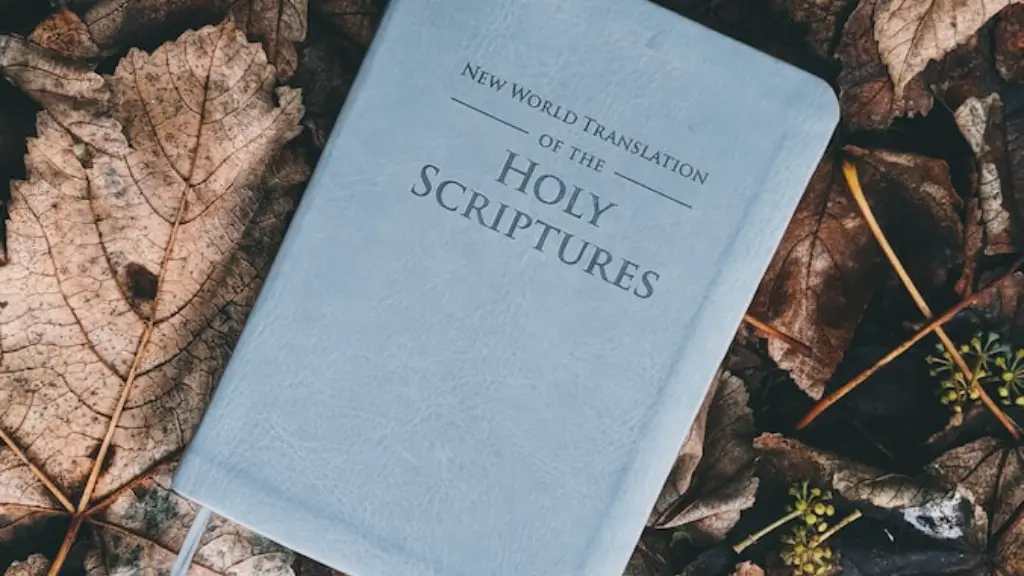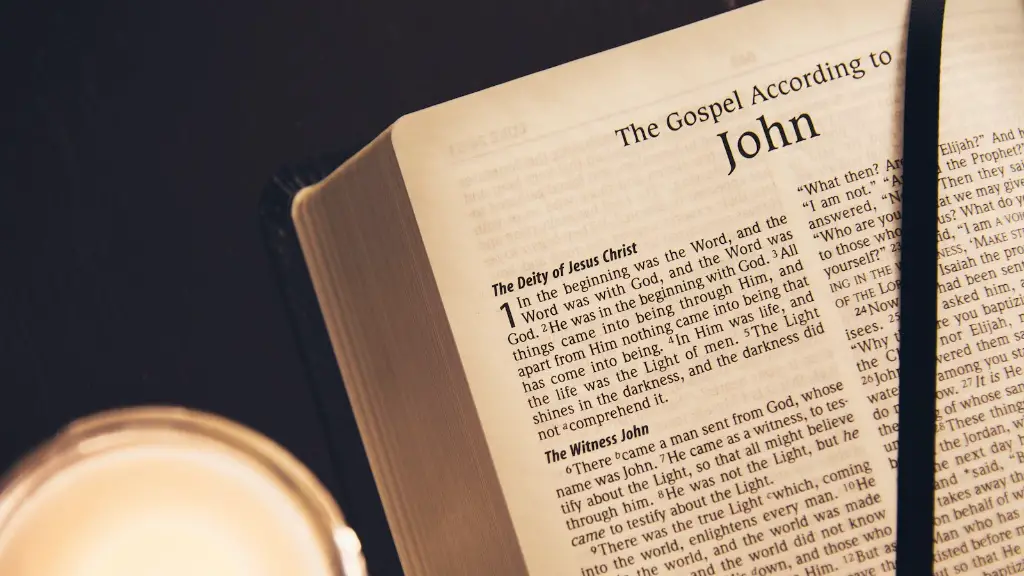Introducing Passover in the Bible
Passover is an important festival in the Bible and it is one of the most ancient religious observances of the Jewish faith. The Passover is described in the book of Exodus, where the Hebrews are instructed by God to celebrate with a meal of roasted lamb and unleavened bread. As such, Passover is traditionally a religious celebration of freedom from enslavement, slavery and suffering. It celebrates the exodus of the Israelites from Egypt and their deliverance from the hand of Pharaoh, as well as of their release from captivity and oppression knowing life would never be the same.
Passover is one of the most important holidays of the Jewish year, since it commemorates the miraculous salvation of the Israelites from Pharaoh’s army. Every year, Jews around the world celebrate Passover for eight days, beginning on the 15th of Nissan. It is a joyous holiday that celebrates freedom and the end of bondage. Families come together to remember the deliverance of their ancestors, as well as give thanks for past freedoms and current blessings.
The Exodus Story
The Bible tells us that during the Passover, God sent the tenth and final plague upon Egypt. This plague was so severe that God ‘smote all the firstborn in the land of Egypt’ (Exodus12:1-3), meaning that no Egyptian could escape the wrath of God. The only place of safety at this time was in the homes of the Israelites, signalling a promise of the covenant to come and reminding Moses of what God had done for his people.
God then commanded Moses to instruct all the Israelites living in Egypt to slaughter a lamb and place its blood over their doorposts. This was a sign from God that the Israelites were recognised as his people, and that he would miraculously save them from the wrath of the tenth plague. The Lord said that if the Israelites obeyed this commandment, all the firstborn in Egypt would be killed, but the Israelites and their families would be spared.
Importance of Family and Tradition
The traditional Passover Seder, eaten on the first night of the festival, emphasizes the importance of family. The Seder celebrates the survival of the Jewish people throughout the millennia, connecting each generation to its past and present.
Traditionally, the Seder is held in the home with family and friends gathering around the table. Each person plays a role in the Seder, symbolizing the different parts of the story of the Exodus, and all of the participants come together to work through the service, telling the story of freedom. The table is also decorated with symbols such as bitter herbs to represent the bitter slavery of the Israelites, while the sweetness of the apple or honey represent a hope for a sweet transition from oppression to freedom.
The Historical Significance of Passover
Passover is not just about physical freedom, but also about spiritual freedom. It reminds the Israelites of their deliverance from Egypt and the importance of being free of spiritual bondage. As such, Passover also serves as a reminder of placing God at the centre of all that we do. By celebrating the holiday, we remember that it is through his grace and mercy that our lives are blessed and our freedoms are upheld.
The Passover celebration isn’t just about remembering what God has done for us in the past, however. It is also about looking ahead to the future. Passover reminds us to hope for a brighter tomorrow and look for signs of deliverance. When we remember our history, we gain strength and courage to confront bigotry, injustice, and other forms of suffering. We look to God for hope and guidance as we celebrate this symbol of freedom and courage.
Passover in the Bible and Today
Passover has been celebrated by Jews for thousands of years, and its symbolism remains relevant today. The Passover story reminds us of the importance of freedom and liberty, and helps us to remember our connection with our roots and the God who brought us out of slavery.
Today, Passover is still celebrated with the same traditional foods, and communal gatherings, as well as innovative new customs. Many Jews celebrate Passover with a modernized version of the seder service, with custom songs, conversations, and readings. People come together at the seder table with friends, family and servants, to talk about what God has done for them in the past and what he will continue to do in the future.
The Importance of Prayer During Passover
The Passover seder table is adorned with symbols that remind us of the physical and spiritual freedom promised by God. Just as in ancient times, people still take a moment from the seder to thank God for the blessings of freedom he has bestowed on them. We recite the Hallel Prayer which is a series of thanksgiving psalms, and thank God for his mercy and grace.
The Passover holiday also marks the re-kindling of the spirit of optimism that is embedded in Judaism. We look back at our glorious past and use its symbolism to enthuse our present. People draw strength from this time of sacrificial commitment, and use their liberty to commit themselves to make the world a better place. It is through our prayers to God that we will be able to continue with this mission.
Modern Meaning of the Passover
The modern interpretation of the Passover has many layers. While the original story was of the liberation of the Jews from slavery in Egypt, it has evolved to become a story of freedom to Jews around the world. We celebrate our privilege to live in freedom, and also acknowledge the dignity of those who still suffer oppression.
Passover is also a time for hope, for renewal and for gathering together. Jews around the world gather at the seder plate to be reminded of the Jewish journey from bondage to freedom. We are reminded to strive for a better society, a society in which we can all live in peace, prosperity and freedom.
The Exodus as a Symbol of a New Start
Passover reminds us that life can be unpredictable, and that hope and optimism can break through even in the face of adversity. It teaches us that no matter how difficult our present situation, we are not doomed to repeat the past, but have the power of free will to choose a better future. The exodus story is a symbol of a fresh beginning and of the potential each person has to choose a different destiny.
The holiday of Passover has relevance to all people, regardless of faith, culture and nationality. It signifies not just a historical event, but a universal story of redemption and hope that we can all learn from. Passover is a reminder of God’s promise, of the drive for freedom and the strength of the human spirit, no matter what obstacles we face.
Passover Celebrations Around the World
The festival of Passover is celebrated in many ways all around the world, depending on the culture and traditions of the families. In Israel, Passover is widely celebrated for 8 days and special festive meals are prepared. In the United States, Jews usually observe the holiday for one or two days.
Many families bring educational elements to their Passover celebrations, with educational materials and interactive games. Passover songs are also often sung at the seder, as people celebrate the gift of redemption by connecting with their faith and heritage. Traditionally, Passover is a time to come together with family and friends, enabling us to experience joy, share love and remember the hardships of our past.
Passover as Part of Jewish Identity
Passover has become a symbol of Jewish identity and heritage. In generations past, the festival served as a reminder of the Exodus, the physical and spiritual transformation of the Hebrew people, and their journey from bondage to freedom. Today, the holiday is celebrated with a renewed focus on the idea that each human being is a part of God’s plan, and is designed to live a life of spiritual and worldly success.
The Passover celebration allows us to connect to our past and reminds us that deep down we are all connected. It also teaches us to appreciate our freedom and be thankful for all that we have been blessed with. Passover honors our ancestors who had faith in uncertainties, who stood up and faced adversity, and who transcended the boundaries of fear and oppression.
Challenges and Opportunities of Passover
As Jews, we celebrate Passover as a reminder of our freedom and of our obligations to pursue social justice and human dignity. However, the holiday is also important in terms of connecting to our Jewish identity and drawing from the lessons of our past.
Passover is an opportunity to break bread with family and friends and to deepen our understanding of the Exodus story. It is a time for learning, for reflection and for thanksgiving. Passover brings with it a challenge to understand our role in the world and to take part in making it a better place. It asks us to make a conscious effort to promote a culture of peace, justice and respect.
Conclusion
The Passover story has many layers of meaning and relevance that we can still carry with us today. The story of the Exodus calls on us to remember our history and to celebrate the power of freedom and the blessings of God. Passover reminds us to be hopeful, to stand up for what is right, and to keep our eyes always on the road to justice, peace, and boundless possibility.



